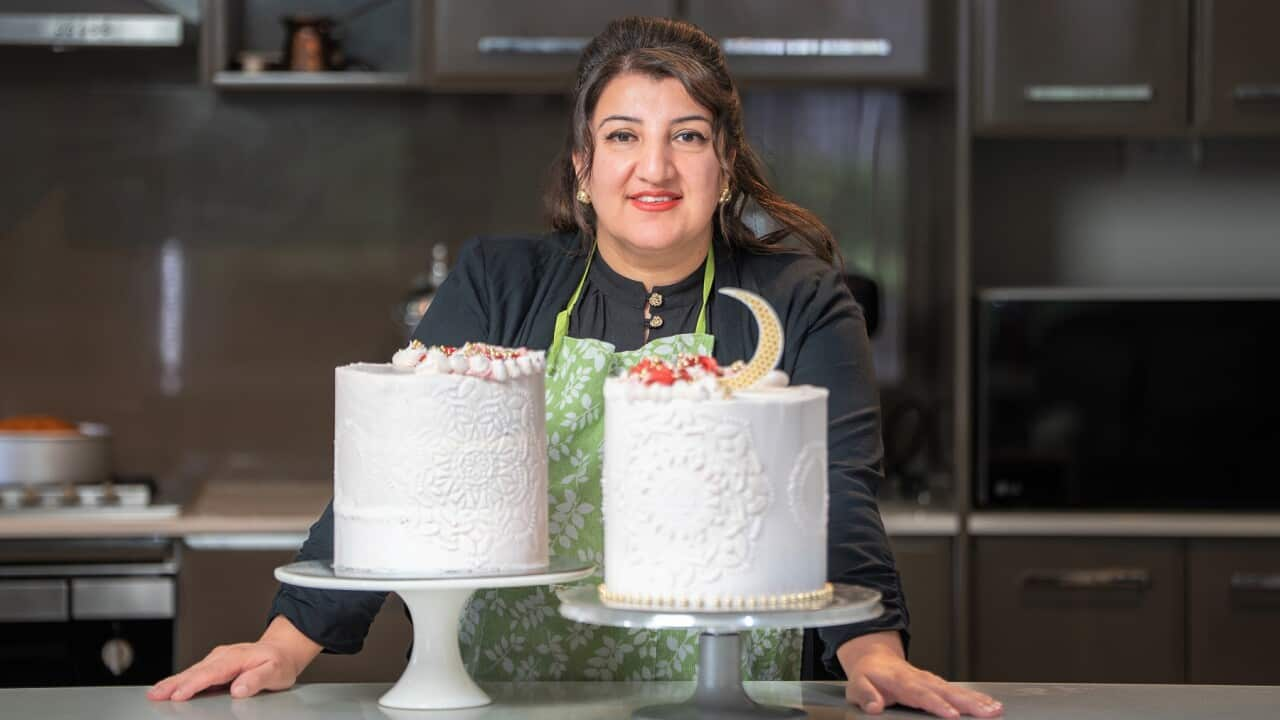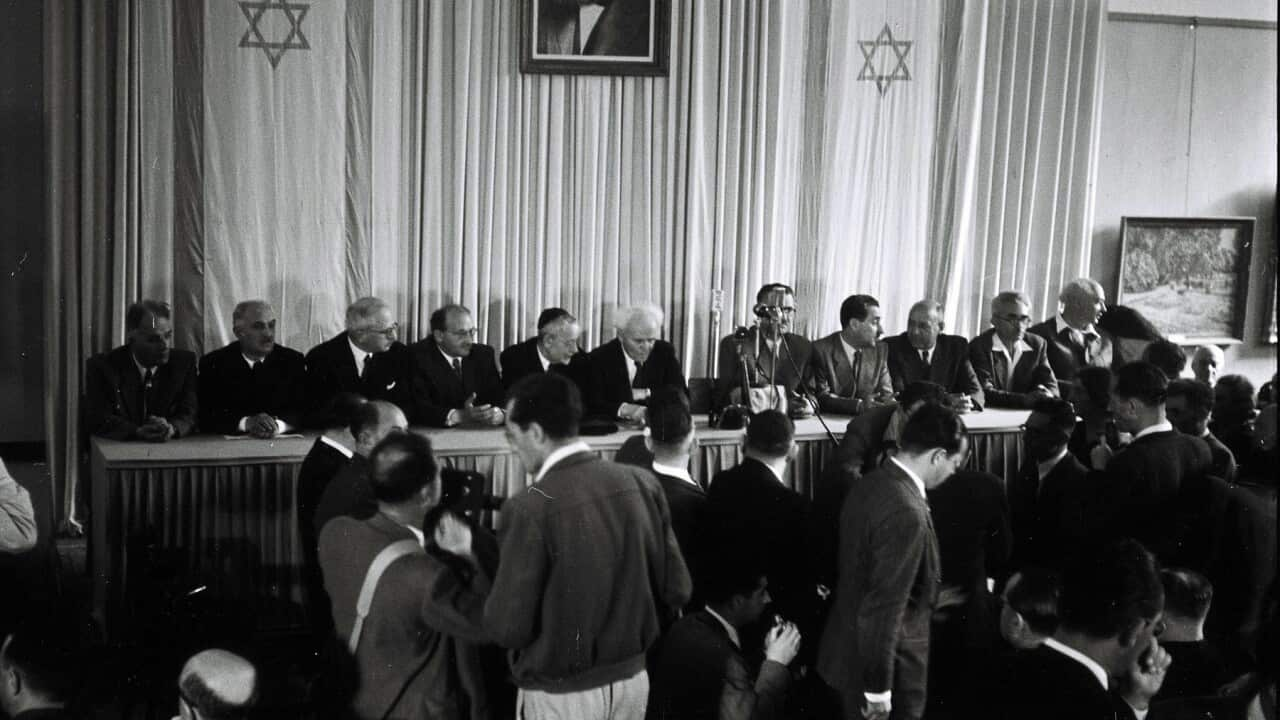TRANSCRIPT
It’s a busy time of year for Narges Andar, a refugee from Afghanistan whose cakes are in demand for Eid celebrations.
"Sharing is done through food, showing love and appreciation and affection. So having that cake and everyone enjoying it at the same time is a wonderful blessing."
Ms Andar is self-taught and spends many hours decorating each cake.
With food prices rising she says quality ingredients aren’t cheap.
"I try and keep the prices low because I am a home baker. I do it out of love. It's not so much for economic gains, but it's my passion, it's my hobby."
Ms Andar is married and raising two children in Sydney.
While her cakes may be sweet, she remains bitter about the plight of girls in Afghanistan.
In the three years since the Taliban cut secondary education for women, UNICEF estimates 2.2 million girls have been impacted and by 2030, more than four million girls will have their education stopped at primary school.
"It is very um, sad. It's really disheartening to see the women or the girls that had to leave their education half finished. Maybe they will not be able to live the dream that they had of becoming a doctor, for example, or a lawyer. I'm constantly seeing footages of girls crying and they can't finish their studies or they're struggling financially. The women where they have no male guardian, so how are they supposed to support their family?"
It’s one reason Ms Andar secretly supports online education for girls in her homeland.
"There are very kind people out there that are trying to help them. And of course my husband and I try to do our bit to support wherever possible. Some kind of education. It could be something as simple as learning English."
It is decades since Ms Andar and her family fled conflict in Afghanistan, escaping overland on donkeys into neighbouring Pakistan.
But the memories of growing up in Kabul remain vivid.
"The skies being light up and me thinking that it's fireworks where it was actually conflict going on. And the loud bangs, it wasn't fireworks … so that's something scary."
Sydney academic Parisa Glass also fled conflict in her homeland.
"I remember being very young in Iran and having men surrounding our home, chanting that they want to kill my father and other Baháʼís in the community. It feels like the gates of hell opened."
At New South Wales University, Dr Glass runs a justice inclusion initiative called JEINA [[Jina]] which creates pathways for displaced women.
JEINA is a Kurdish word meaning life-giver.
"It started in 2022 as a result of the uprising of women in Iran for their rights because Jina Mahsa Amini was incarcerated and she died in custody because of the choices of her clothing. And we don't want that to happen any more. So, it's really about justice for women wherever they may be."
Worldwide, this year almost 140 million people are displaced or stateless, according to the UNHCR.
Dr Glass is working to improve outcomes for those seeking safety here.
"Forced migration happens for many reasons. And it could be war, it could be human rights violation, it could be climate change. It's a big barrier for them to actually be able to find employment and obviously other issues associated with that. Domestic violence is a big issue as well as mental health."
JEINA has so far broadened opportunities for hundreds of women and Dr Glass hopes to scale further.
"We've got a massive mentoring network at UNSW. We want these women to take advantage of that and we want industry to partner with us so we can build a much bigger network."
As Ramadan fasting comes to an end, Narges Andar hopes all women can find reasons celebrate and count their blessings.
"Being grateful and appreciative of what you have because that’s what fasting represents. We just need more love and more kindness in the world at the moment."













